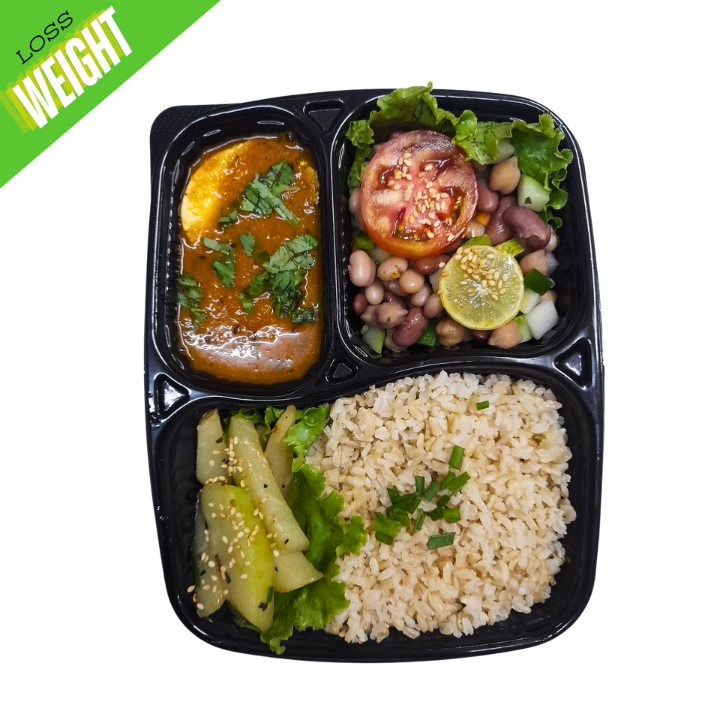Low Calorie Meal Plan
A low-calorie diet is a dietary approach aimed at reducing calorie intake to promote weight loss or maintain a healthy weight. The concept is based on the principle that consuming fewer calories than your body needs will lead to a calorie deficit, prompting your body to burn stored fat for energy.
Description
A low-calorie diet is a dietary approach aimed at reducing calorie intake to promote weight loss or maintain a healthy weight. The concept is based on the principle that consuming fewer calories than your body needs will lead to a calorie deficit, prompting your body to burn stored fat for energy.
Here are some key aspects and considerations of a low-calorie diet:
1. Calorie Intake Reduction:
Purpose: The primary goal of a low-calorie diet is typically weight loss. By reducing calorie intake below your daily energy expenditure (calories burned through basal metabolic rate, physical activity, and digestion), you create a calorie deficit.
Caloric Deficit: A typical approach is to reduce daily calorie intake by 500-1000 calories below your maintenance level. This can lead to a weight loss of about 1-2 pounds per week, which is generally considered safe and sustainable.
2. Food Choices:
Nutrient Density: Despite lower calorie intake, it's crucial to maintain nutrient adequacy. Choose nutrient-dense foods that provide essential vitamins, minerals, and other nutrients per calorie.
High Volume, Low-Calorie Foods: Incorporate foods that are high in volume but low in calories, such as vegetables, fruits, lean proteins (like chicken breast, fish, tofu), and whole grains (like quinoa, brown rice).
3. Meal Planning:
Balanced Meals: Plan meals that include a balance of protein, carbohydrates, and healthy fats to promote satiety and provide essential nutrients.
Portion Control: Pay attention to portion sizes to ensure you're not unknowingly consuming more calories than intended.
4. Monitoring and Adjustments:
Tracking: Keep track of your daily calorie intake using food journals or mobile apps to monitor progress and make adjustments as needed.
Flexibility: While consistency is key, allow flexibility to accommodate social events or cravings within your calorie budget.
5. Health Considerations:
Consultation: It's advisable to consult with a healthcare provider or registered dietitian before starting a low-calorie diet, especially if you have any underlying health conditions or concerns.
Long-Term Sustainability: Ensure that your diet is sustainable and provides adequate nutrition to support overall health and well-being in the long term.
6. Exercise:
Physical Activity: Incorporate regular physical activity to enhance calorie expenditure, improve overall fitness, and support weight loss efforts.
Strength Training: Including strength training exercises can help preserve muscle mass while losing weight, which can aid in maintaining a healthy metabolism.
Potential Benefits of a Low-Calorie Diet:
Weight Loss: Effective for achieving and maintaining a healthy weight.
Metabolic Health: May improve markers of metabolic health such as blood sugar levels, cholesterol, and blood pressure.
Heart Health: Can reduce risk factors associated with cardiovascular diseases.
Longevity: Some studies suggest calorie restriction may promote longevity and reduce age-related diseases.
Potential Challenges:
Nutrient Deficiency: If not carefully planned, a low-calorie diet can lead to inadequate intake of essential nutrients.
Sustainability: Some people find it challenging to maintain a low-calorie diet over the long term.
Individual Variability: Calorie needs vary widely based on factors like age, sex, weight, activity level, and metabolism.
In conclusion, a low-calorie diet can be an effective strategy for weight loss and improving health outcomes when done sensibly and with consideration for nutritional adequacy. It's important to approach it as part of a balanced lifestyle that includes regular physical activity and mindful eating habits.

